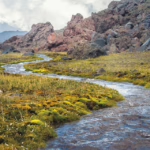Smart Entertainment Centers: How Technology is Changing Our Viewing Experiences
Introduction
In recent years, the entertainment landscape has been transformed by technological advancements, particularly through the rise of smart entertainment centers. These hubs have integrated various media sources, offering convenience and enhancing our viewing experiences. With the advent of smart technology, our engagement with television, movies, and video games has been redefined.
1. The Evolution of Entertainment Centers
1.1 A Brief History
The journey of entertainment centers began with the traditional television set housed in a bulky cabinet, often accompanied by a stereo system and VHS player. Over the decades, technology has evolved dramatically, leading to the introduction of flat-screen TVs, sound systems, and eventually, integrated smart systems that combine streaming services, gaming, and more in one neat package.
1.2 The Birth of Smart Technology
The introduction of the internet and Wi-Fi into home entertainment paved the way for smart technology. Early models of smart TVs allowed users to stream content from platforms like Netflix, but the evolution didn’t stop there. Features such as voice control, app integration, and even personalized recommendations changed the way we consumed entertainment.
2. What is a Smart Entertainment Center?
A smart entertainment center combines hardware and software to provide users with a seamless experience. Typically, it includes:
- Smart TV: The centerpiece of the entertainment center that connects to the internet, streaming various content services.
- Home Theater System: Surround sound systems that bring cinema-quality audio to the living room.
- Game Consoles: Modern gaming systems that also serve as multimedia hubs.
- Streaming Devices: Gadgets such as Roku, Amazon Fire TV, or Apple TV that expand the range of available content.
- Media Players: Options for playing physical media formats like Blu-rays.
3. The Role of Smart Entertainment Centers in Modern Viewing Experiences
3.1 Integration and Convenience
One of the foremost advantages of smart entertainment centers is the integration of multiple devices into one cohesive system. Users can control their TV, sound system, and other devices using a single remote or voice assistant. This simplification reduces clutter and enhances user experience.
3.2 Customization and Personalization
Smart entertainment centers offer tailored viewing experiences by utilizing algorithms that analyze user preferences. For instance, platforms may recommend shows based on viewing history, optimizing time spent searching for content.
4. Impact on Content Consumption
4.1 Streaming Dominance
The shift towards streaming services like Netflix, Hulu, and Disney+ has been a game-changer. In 2021, it was reported that nearly 80% of households engaged with a streaming service, demonstrating how smart entertainment centers are pivotal in accessing on-demand content.
4.2 On-Demand vs. Scheduled Programming
Traditional scheduled programming is losing ground to on-demand services. Viewers can control when they watch and what they watch, resulting in a more personalized approach to entertainment.
5. Smart Features Enhancing Experiences
5.1 Voice Control
Voice-activated features allow users to search for content, control playback, and adjust settings without the need for physical interaction. Virtual assistants like Amazon Alexa or Google Assistant have made this possible, enhancing user engagement.
5.2 4K and 8K Resolution
The quality of viewing experiences has escalated with advancements in display technology, including 4K and 8K resolutions, which offer incredibly sharp images. This enhancement is crucial for those who seek cinematic experiences at home.
5.3 Augmented and Virtual Reality
Some smart entertainment centers are now delving into augmented and virtual reality, offering immersive experiences that were previously possible only in gaming. These technologies further blur the lines between traditional viewing and interactive experiences.
6. Social Features and Interactivity
6.1 Social Viewing
Smart entertainment centers enable users to engage socially while watching content. Features such as watch parties allow friends and family to interact online, sharing reactions and comments in real time.
6.2 User-Generated Content
Platforms increasingly encourage user-generated content, allowing viewers to contribute and interact with media in new ways. Social media integrations enhance this interactivity, making viewers part of the content creation process.
7. The Future of Smart Entertainment Centers
7.1 Artificial Intelligence and Machine Learning
Advancements in AI and machine learning will further enhance the smart entertainment center experience. Expect more intuitive recommendations, smarter voice assistants, and perhaps even content tailored specifically to the individual viewer’s mood or preferences.
7.2 Enhanced Connectivity
As the internet of things (IoT) expands, so too will the capability of smart entertainment centers to connect with other home devices. This could lead to fully integrated smart homes where entertainment experiences are enhanced by the environment—like adjusting lighting or temperature for movie nights.
Conclusion
Smart entertainment centers have revolutionized the way we consume and engage with media. As technology continues to evolve, so too will these systems, promising an ever-more customized, interactive, and immersive viewing experience. The marriage of convenience and advanced technology is reshaping the very fabric of our entertainment, and it is an exciting time to explore the possibilities.
This brief overview introduces the topic of smart entertainment centers. Please let me know if you would like specific sections expanded or additional topics to be included!


























Add Comment